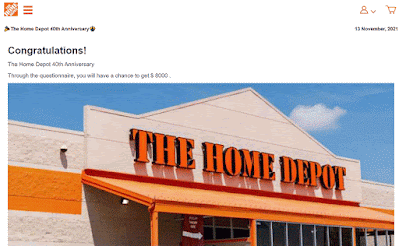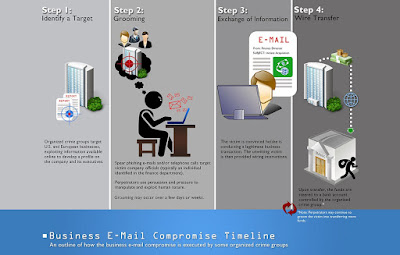My Uncle Got Sucked Into A "Home Depot" Phishing Scam
So, I am on WhatsApp, checking out some family conversations, when I receive a message from my uncle. Message reads:
"The Home Depot 40th Anniversary. Click to enter to participate in the survey. Have a chance to win $ 8,000! BeneficialYear.TOP"
Right away, red flags go up. Looks extremely suspicious, but I click the link anyway, because I want to see what the scam looks like, so that I can warn others.
Here's a capture of the URL, and the page it took me to:
=======
When I reloaded the page, I was taken to a totally different URL:
 |
www.FedPrimeRate.com: Phishing Scam Image 2 |
First of all, if this is a survey from The Home Depot, then why on Earth would I be redirected to 2 different URLs? And why would one of the domain names use a .CN top level name, meaning it's registered in China?
Moreover: all the navigation links don't work, and the same if you try to "up" or "down" vote in the comments section.
As I investigated further, I found that Firefox is aware, and warning folks:
 |
| www.FedPrimeRate.com: Mozilla FireFox Warning - Deceptive Site Ahead |
=======
Please people: don't forward suspicious messages to friends and family without checking them out. You could end up doing serious harm to people you care about.
>>> CLICK HERE FOR MORE SAFETY WARNINGS <<<
>>> CLICK HERE for SCAM ALERT: HOW TO AVOID BANKING AND OTHER TRENDING SCAMS; KNOW THE RED FLAGS <<<
Labels: BEC_Scams, Contest_Scam, FedPrimeRate, FedPrimeRate.com, Home_Depot, Home_Depot_Scam, money, Questionnaire, Questionnaire_Scam, scam, Scam_Alert, Scam_Artist Phishing, scams, Spoofing, www.FedPrimeRate.com
|
--> www.FedPrimeRate.com Privacy Policy <--
CLICK HERE to JUMP to the TOP of THIS PAGE --> SITEMAP <-- |





